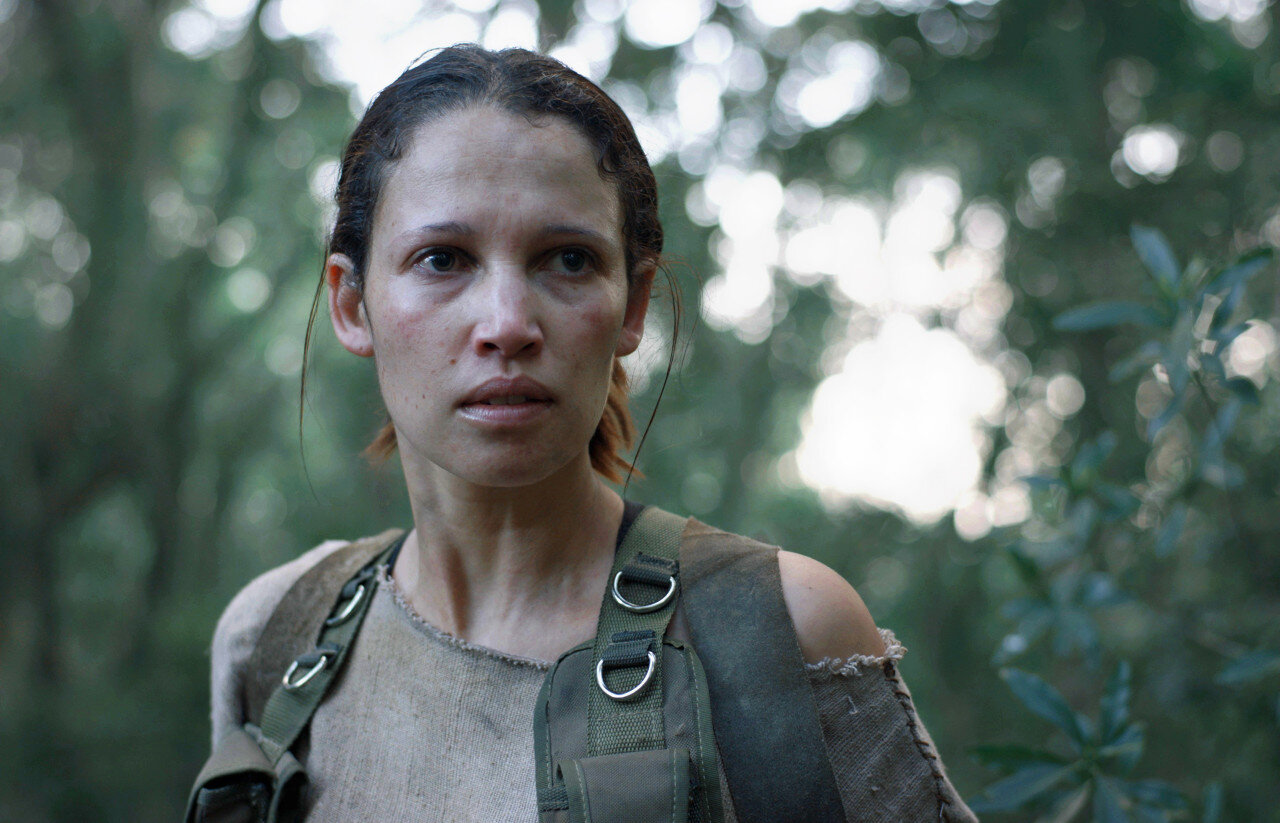Gaia: A Weird Enviro-Horror Fantasy Too Smart For Its Own Goddess
By Thom Ernst
Rating: C+
I gather from reports that there were challenges in the making of Gaia. Maybe not Apocalypse Now challenges, but Fitzcarraldo challenges, minus the egos and the uphill hauling of a massive set-piece.
The culprit in Gaia, the next in a line of environmental horror films to double-bill with Annihilation or In the Earth, is not with the cast and crew or props, but with the terrain.
Director Jaco Bouwer makes good use of the location (much of the film is shot in South Africa's Tsitsikamma forest). It's all on screen in a suffocating canopy of green with muddied streaks of blue. Gaia pits the earth as the beast in the beauty: a lure into an inescapable grave, like diving too deep in the ocean without enough air to swim back up.
Viewed from above—20,000 feet above seems ideal—and the forest appears as an untouched Eden. Yet crawling along the forest floor is a treacherous web of knotted roots and clutching vines, as well as an undisclosed evil.
The action—and by “action” I mean a crawl-by-crawl tableau of meaning and metaphor—begins when a lost and injured forest ranger named Gabi (her name spelled within intriguing proximity to Gaia) is rescued by a father and son recluse (albeit from one of their traps).
PROUDLY SUPPORTS ORIGINAL-CIN
Barend (Carel Nel) and Stefan (Alex van Dyk) live in rejection of civilizing influences, including technology, sexual attraction, and, as evident from the constant scowl on Barend's face, any form of joy and happiness. Eventually, Gabi (Monique Rockman) begins to suspect Barend's humourless devotion to primitive living is more than simply a philosophical choice.
The story is based in part on Gaia as Goddess of the Earth—one of those lustful, close to sin, quick to be jealous Gods of Greek mythology. In mythology and when referenced by characters in the film through their prayers to “mother,” Gaia is understood to be feminine. But the other part of the story takes cues from the biblical Gaia an Angel of Mercy; they are less commanding than their mythical Greek counterpart.
(Fun fact: the Bible seems to support the use of “they” pronouns when referencing Angels who are without identifiable gender. Pocket that bit of info next time theology is positioned as an argument against non-specific pronouns).
Gaia (the film) strives to serve two Gods—The God of the Old Testament and Zeus—creating a confusing mash of ideas and illusions. With images culled from both sources, it's hard to know with which God to go. I suppose that works as an allusion to our lives, but I doubt religious indecisiveness is the juxtaposition Bouwer or screenwriter Tertius Kapp is after.
Technically, Gaia is stunning. Director Bouwer spins the scenery as though mounting the earth on a gyroscope. And no less impressive are the effects of an encroaching fungus that infects and sprouts on living hosts, and the appearance of the sightless and furious creatures who stalk them at night.
Unfortunately, the story that Bouwer concocts from Kapp's script is often an arduous journey through a strain of spiritual imagery and hallucinogenic nightmares. Thankfully, Gaia's unearthly earthiness (the aforementioned sightless creatures) arrives as a welcome antidote to the film's plodding earnestness.
Traditional horror fans are likely to find the effort tiresome despite a few intense scenes. But those who like their horror films laced in a philosophical debate will find plenty to enjoy. Plus, the number of times Gabi bolts upright out of a nightmare can make for a seriously competitive drinking game.
Gaia. Directed by Jaco Bouwer. Starring Monique Rockman, Carel Nel, Alex Van Dyk, and Anthony Oseyemi. Available across various VOD platforms beginning June 25.



